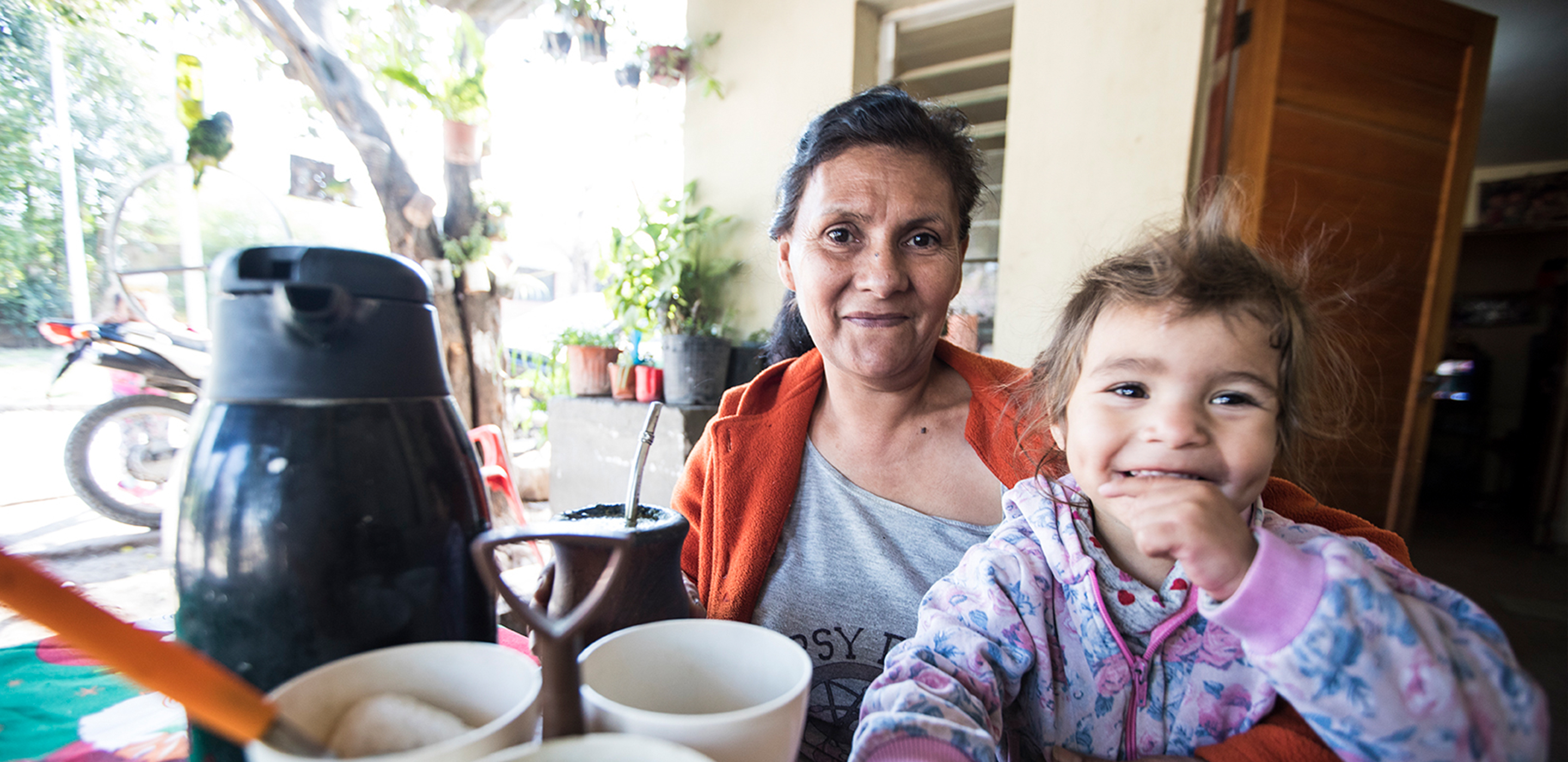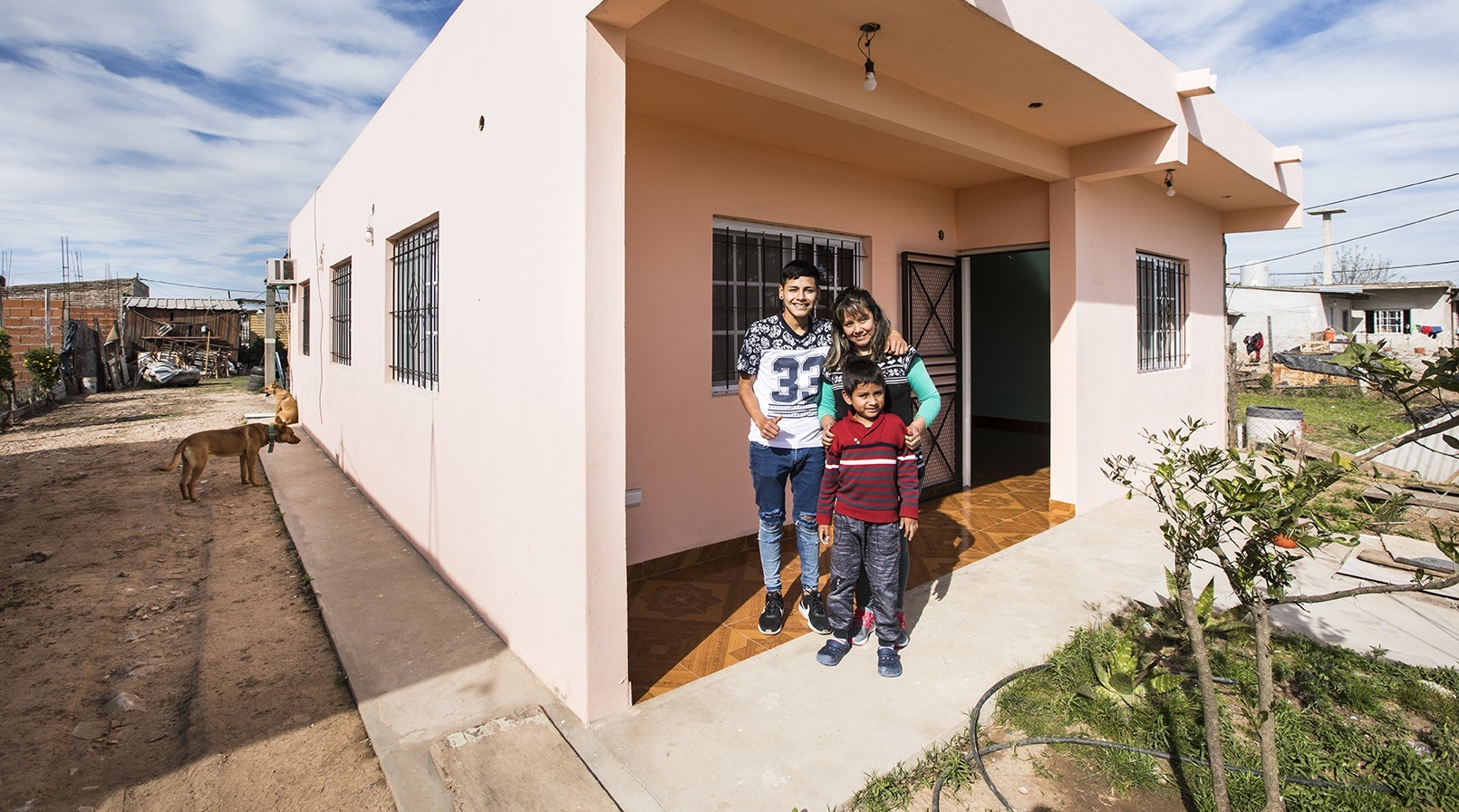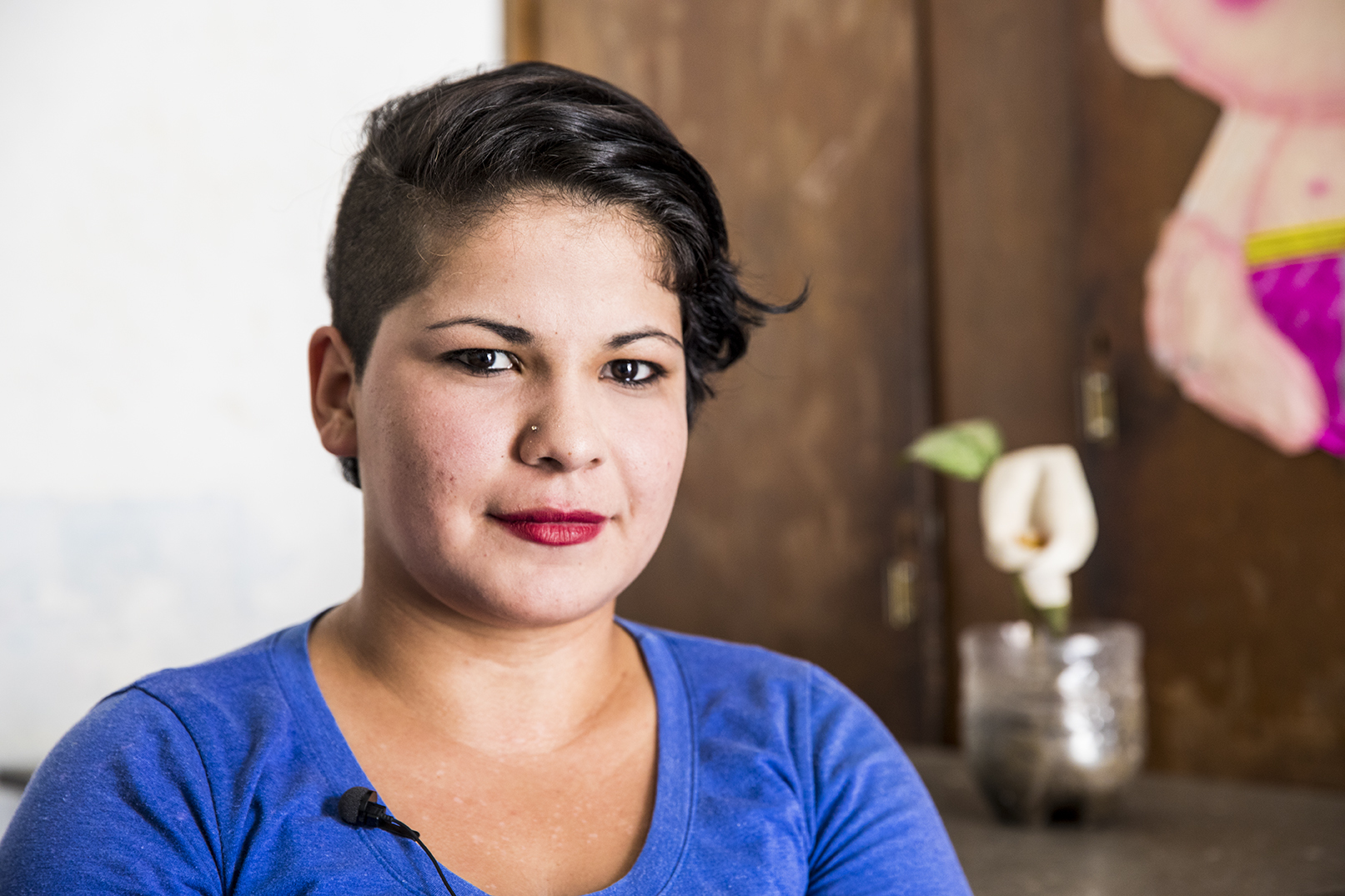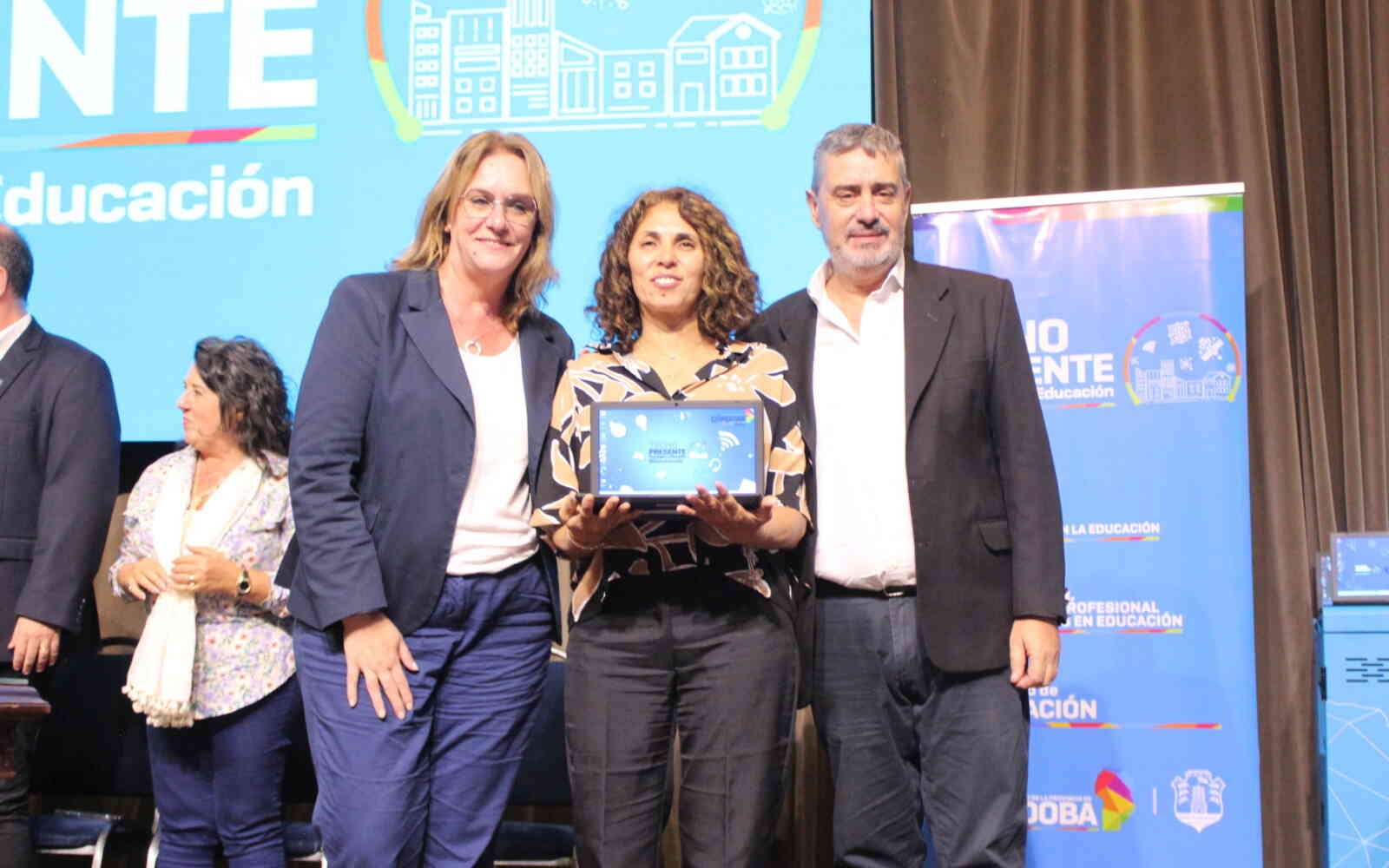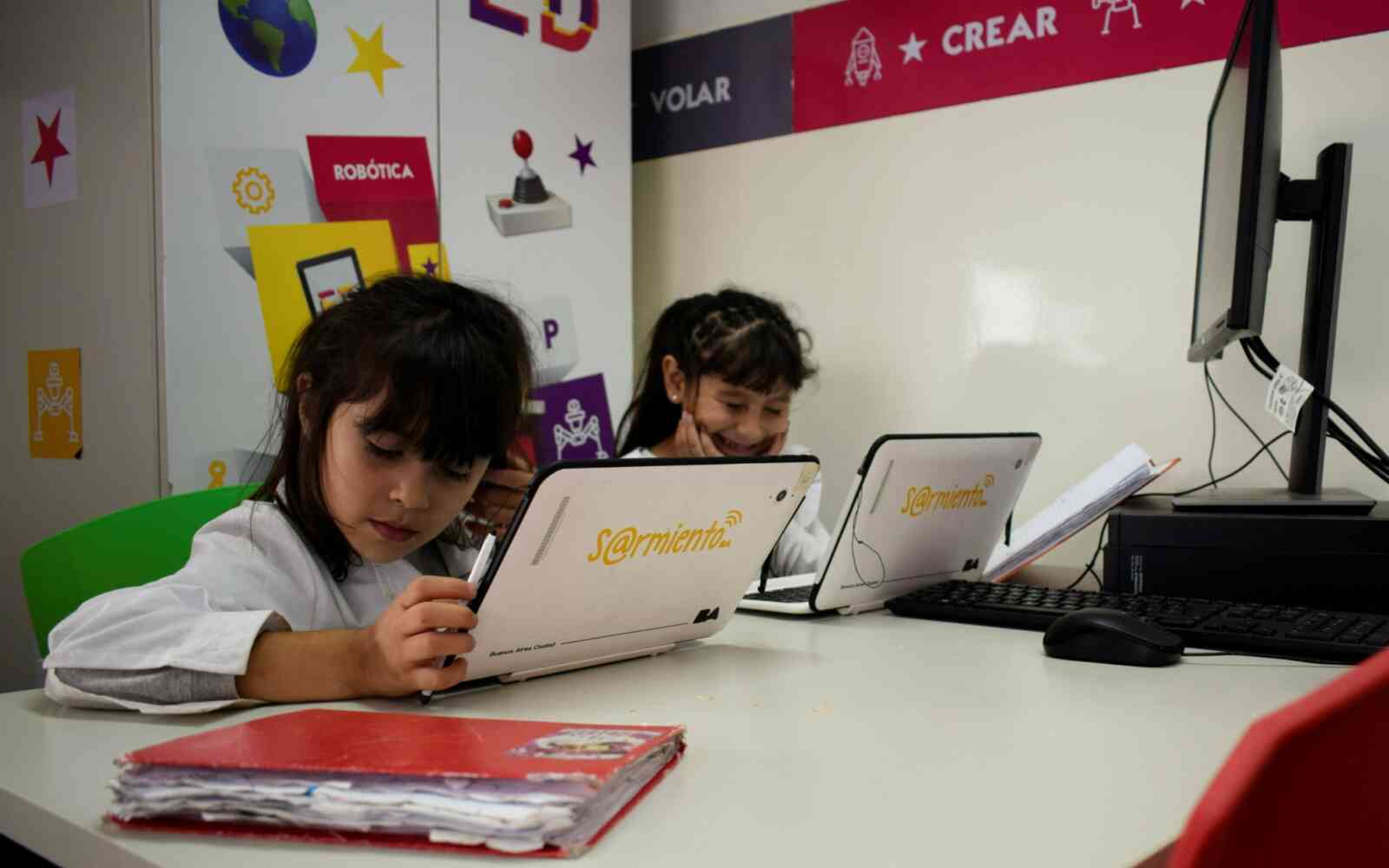The United Nations Office for Project Services (UNOPS)
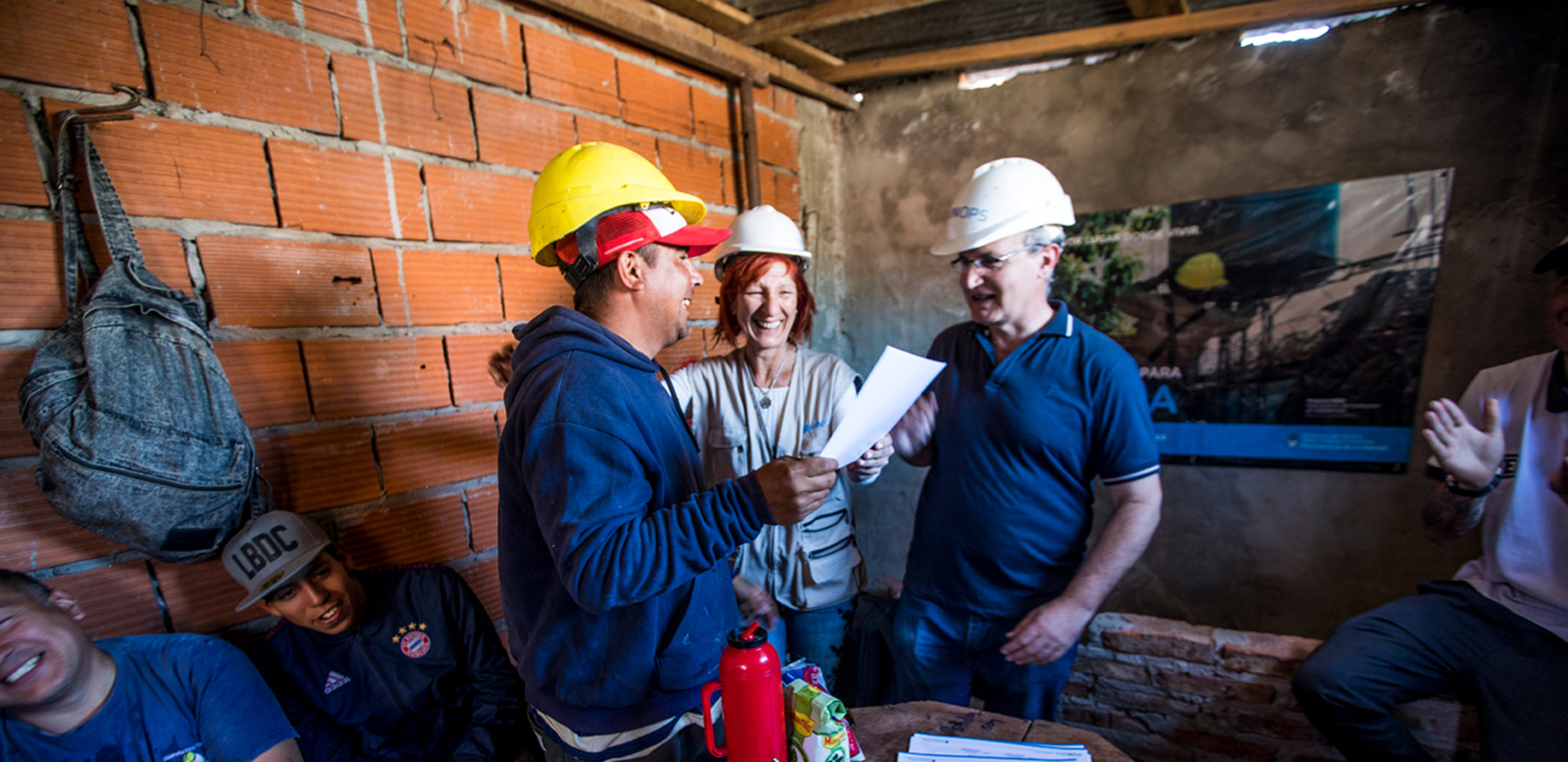
A chance for change
An infrastructure programme is providing former prisoners with an opportunity to help improve their communities.
Around 4,000 low-income neighbourhoods are spread across Argentina – with the province of Buenos Aires being home to around one-quarter of the country’s slums and informal settlements. Inadequate housing and lack of access to basic services negatively affect the quality of life for hundreds of thousands of Argentines, which generates inequality, exclusion and poverty.
In Barrio Curita, in the municipality of General San Martín, an unlikely group of men and women helped connect 450 homes to water services – a lack of access to water is an all too common issue in low-income neighbourhoods.
Made up of a group of socially excluded men and women, Los Topos provides job opportunities in infrastructure to community members who have had past conflicts with the law.


Daniel Walter Farías
“When I was released from prison, I was down and out, as we say – I had nothing,” says Los Topos member Daniel Walter Farías. “Los Topos opened a door to me and that meant the world for me. [...] I committed a felony and I paid the price, and now I have a job. […] This cooperative is everything.”
Throughout Barrio Curita, Los Topos connected homes to formal water networks and installed water tanks as reservoirs, providing families with easy access to uncontaminated water.
“When we arrived to work here, the situation was very bad,” describes Daniel. “Many children and teenagers carried buckets filled with water. There was no drinking water.”
Now, when Daniel walks around the neighbourhood, he sees the progress he’s helped make. Children no longer carry water, but play in the park instead.
We entered very precarious houses and saw that these families were in extreme need. [After a while], we could see their smiles and the happiness of having access to drinking water. I felt helpful. It was really beautiful.
Members of Los Topos were trained by Agua y Saneamientos Argentinos S.A – the government water service provider – to make intra-household water connections and created a system to continue teaching the trade to new members. Additionally, UNOPS helped to further strengthen Los Topos project management skills.
“Although I wasn’t a hard worker before living in prison, today I consider myself a hard worker. I am very proud of the diploma I received,” exclaimed Daniel. “We are never too old to learn.”
Agustín Quispe
Nineteen-year-old Agustín Quispe joined Los Topos in hopes of avoiding an all-too-common path that can lead to drug addiction or prison. Through the group, he witnessed first hand how members of his community were turning their life around, as well as improving their neighbourhood.
By listening to experiences from other members, Agustín learned the importance of family, community and the value of being given a second chance.
I have learned that when you make a mistake and pay the price for it, you can continue your normal life later. And I think these men prove that day by day. They acted wrongly, they paid the penalty but now they continue their life.
Los Topos and Las Topas
Established in 2017, the Los Topos Ltda. Work Cooperative has worked with UNOPS social infrastructure programme for around three years. With funding from the government of Argentina, the cooperative carries out community infrastructure tasks targeting disadvantaged families in the province of Buenos Aires, connecting homes to water services and improving urban and public spaces in neighbourhoods.
As part of the cooperative, Las Topas currently provides similar job opportunities for around 90 women who have had past conflicts with the law. Many help with neighbourhood recycling and help spread awareness of recycling and environmental protection.
A cultural shift
Mónica Rivera – the Executive Coordinator of the nationwide social housing programme supported by UNOPS, the government of Argentina and community-based organizations – described how for many, joining the Los Topos cooperative provides members with their first real job opportunity, often breaking down generational cycles of informal employment.
“Their grandparents and parents never knew what formal working culture is about. So, this is the first opportunity for them to have a formal job, to open a bank account, to have a credit card so they can withdraw cash in a bank,” says Mónica Rivera. “This is very encouraging.”


With support from UNOPS, Los Topos has implemented eight projects in four neighbourhoods, connecting around 700 families to the safe water networks, improving sidewalks and building a recreational centre.
By providing jobs and training, the social infrastructure programme helps to not only improve the infrastructure of homes in low-income neighbourhoods, but enables a cultural shift that deters the likelihood of engaging in illegal activities.
“By accessing genuine, quality work, we see how they change and how they picture a different future and can redirect their life,” says Mónica Rivera. “And importantly, this demonstrates how work really contributes to lowering crime rates.”
Importantly, the programme views the investment in infrastructure as a way to achieve social inclusion, providing valuable tools to help bring together the community.
Through infrastructure, we somehow manage to socially repair a tissue that is currently torn by poverty, due to the absence of hope and the absence of opportunities. [...] In some way, [the programme] sews and weaves that damaged social tissue back together again.
Throughout Buenos Aires, Los Topos continues to improve living conditions for disadvantaged families. Today, the cooperative is also working to support vulnerable communities faced with economic hardships caused by COVID-19. Members are selling fruits and vegetables at affordable prices and donating a portion of the profits to vulnerable families.
Programme details
Together with the Ministry of Public Works, municipalities and community-based organizations, UNOPS is implementing an integral social infrastructure programme that aims to improve living conditions, provide improved access to basic services and enhance public spaces in lower-income areas. The programme is providing improved urbanization, housing, technical assistance and social support to communities in nine provinces across Argentina.
The programme, which is expected to benefit some 50,000 people, operates through financing assigned to local community-based organizations or municipal governments that are in charge of different infrastructure projects. Hundreds of homes are being renovated or newly constructed for vulnerable families while thousands of homes are being connected to essential services. This includes around 2,500 homes connected to water networks and around 1,400 homes connected to sewage networks. Public spaces are also being enhanced in municipalities across the country.










